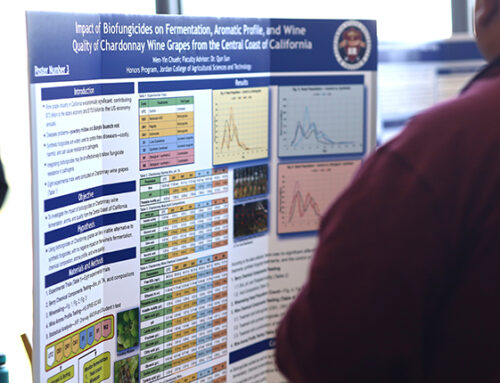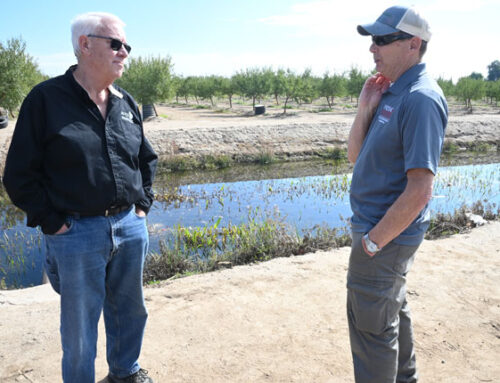The overall San Joaquin Valley Business Conditions Index increased in January, pointing to continued growth for the first part of 2016. This marks the 26th consecutive month the index has remained above the 50.0 growth neutral threshold.
The index, produced by Fresno State’s Craig School of Business, is a leading economic indicator from a survey of individuals making company purchasing decisions in the counties of Fresno, Madera, Kings and Tulare.
The overall January index rose to 58.8 from 55.6 in December. An index of greater than 50 indicates an expansionary economy over the course of the next three to six months.
“According to our survey results over the last several months, economic growth will remain positive in the months ahead and well above that of the nation’s economy,” said Dr. Ernie Goss, research faculty with the Craig School. “As in December, January growth slowed for manufacturers, especially durable goods producers, while construction firms reduced jobs for the month. On the other hand, wholesale trade and business services firms continue to experience healthy growth.”
The index uses the same methodology as that of the national Institute for Supply Management.
Other survey findings:
- Employment: After slumping below growth neutral in October 2013, the regional hiring gauge has moved above the 50 threshold each month since. The employment index climbed to 58.3 from 55 in December. Goss said half of the businesses reported the number of applicants exceeded the number of available jobs, but about 10 percent of businesses reported shortages of workers for company job openings.
- Wholesale prices: The prices-paid index, which tracks the cost of purchased raw materials and supplies, fell to 44.1 from 49.7 in December. Mirroring other regional and national survives, the San Joaquin Valley inflationary gauge has remained in a range indicating little to no inflationary pressures at the wholesale level.
- Business confidence: Looking ahead six months, economic optimism, as captured by the business confidence index, rose slightly to a weak 45.3 from December’s 44.4. “Weak agriculture commodity prices and global economic weakness continue to weigh on expectations of future economic conditions,” Goss said.
- Inventories: Businesses expanded inventories of raw materials and supplies for January and at a faster pace than in December. The January inventory index climbed to 57.4 from 56.5 in December.
- Trade: New export orders fell again, and at a swifter pace. The index sank to 38.6 from December’s 41.5, and the import index rose to 49.1 from 42.7 in December.
- Other components: Other components of the January Business Conditions Index were new orders at 61.5, up from December’s 52.2; production or sales at 62.2, up from 55 in December; and delivery lead time at 54.6, down from last month’s 59.3.
For more information, contact Goss at 559.278.2352.
Related links:
- Craig School of Business
- Dr. Ernie Goss: www.twitter.com/erniegoss or www.ernestgoss.com
- Institute for Supply Management
- Video of January report






